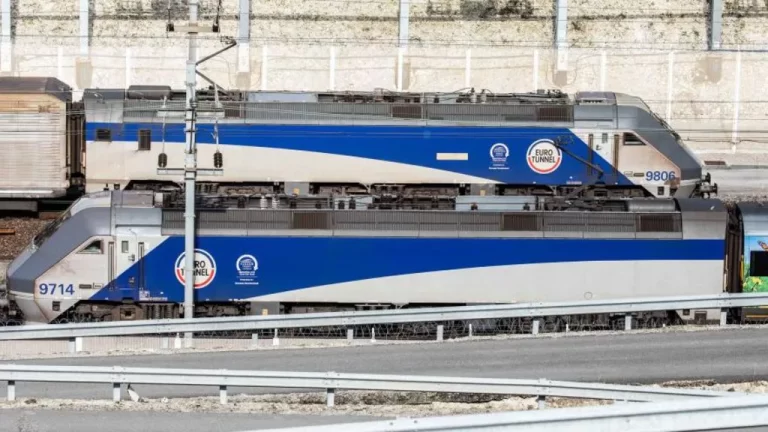The boss of Eurotunnel has insisted there will not be long queues of cars at its terminals when a new EU travel system starts in October. Brits heading to and from Europe will need to register fingerprints and a photo at the border, which has prompted warnings of delays.
Eurotunnel chief executive Yann Leriche said journeys would take five-to-seven minutes longer, but extra lanes and technology mean the process will go smoothly. The BBC had the first look at new machines people will need to use at Folkestone or Calais.
At the Port of Dover, Eurostar’s St Pancras terminus and Eurotunnel in Folkestone, French border police check passports as people leave the UK. The EU’s much-delayed Entry Exit system, or EES, will replace manual passport stamping.
Citizens of countries which are outside the bloc, including the UK, will need to register their biometric information. There have been repeated warnings of queues as a result, and calls for the EES launch to be pushed back again.

There were hopes that an app being developed by the EU could enable some of the registration to be done from home, but it is not expected to be ready for use in October. At Eurotunnel’s Folkestone and Calais sites, we saw how the company which operates vehicle and freight shuttles across the Channel Tunnel has been preparing for the new system.
The equivalent of £70m is being spent building processing zones, where people will queue in their cars to use automatic machines.
Yann Leriche, the chief executive of Eurotunnel operator Getlink, told the BBC that travellers “will simply [get] out of their car, spend a few minutes on their kiosks, and go back to their car and continue their journey”.
He said it would take “five to seven minutes extra to get through”, but added “as we have extended the number of lanes, there will be no delay on the highway, nothing. It will happen in a very smooth manner”.
The company will recruit 140 new staff to assist passengers. I tried out one of the prototype machines which Eurotunnel will use at its terminals.
First, it took a scan of my passport. Next, the machine then took a photo of my face.
I was then asked to put my right hand on another scanning pad, which recorded my fingerprints. A series of questions about my journey followed on the touchscreen, to which I had to answer “yes” or “no”.
At the Port of Dover, the plan is slightly different. Port staff will have iPads for car passengers to register their information.
Coaches will be processed off-site at the Western Docks, with e-gates or kiosks., Monday marks 30 years since Queen Elizabeth II and President Mitterand took part in the Channel Tunnel's official opening event.
Paying passengers had to wait several months longer to take the journey on Eurostar trains. The tunnel opened £2bn over budget. The company operating it nearly went bust at one point, but it later became profitable and the services through the tunnel have endured.

With the pandemic over and preparations under way for the introduction of EES, Getlink boss Mr Leriche wants to see an increasing number of trains going through the tunnel.
Eurostar, a separate company to Eurotunnel, runs passenger services from London St Pancras through the Channel Tunnel to Paris and beyond. Since the tunnel opened, it has been the only operator doing that.
Now, there's talk of rival operators springing up. Mr Leriche said: “We are confident that within the next 10 years, there will be a doubling of the direct connection between London and Europe”.


